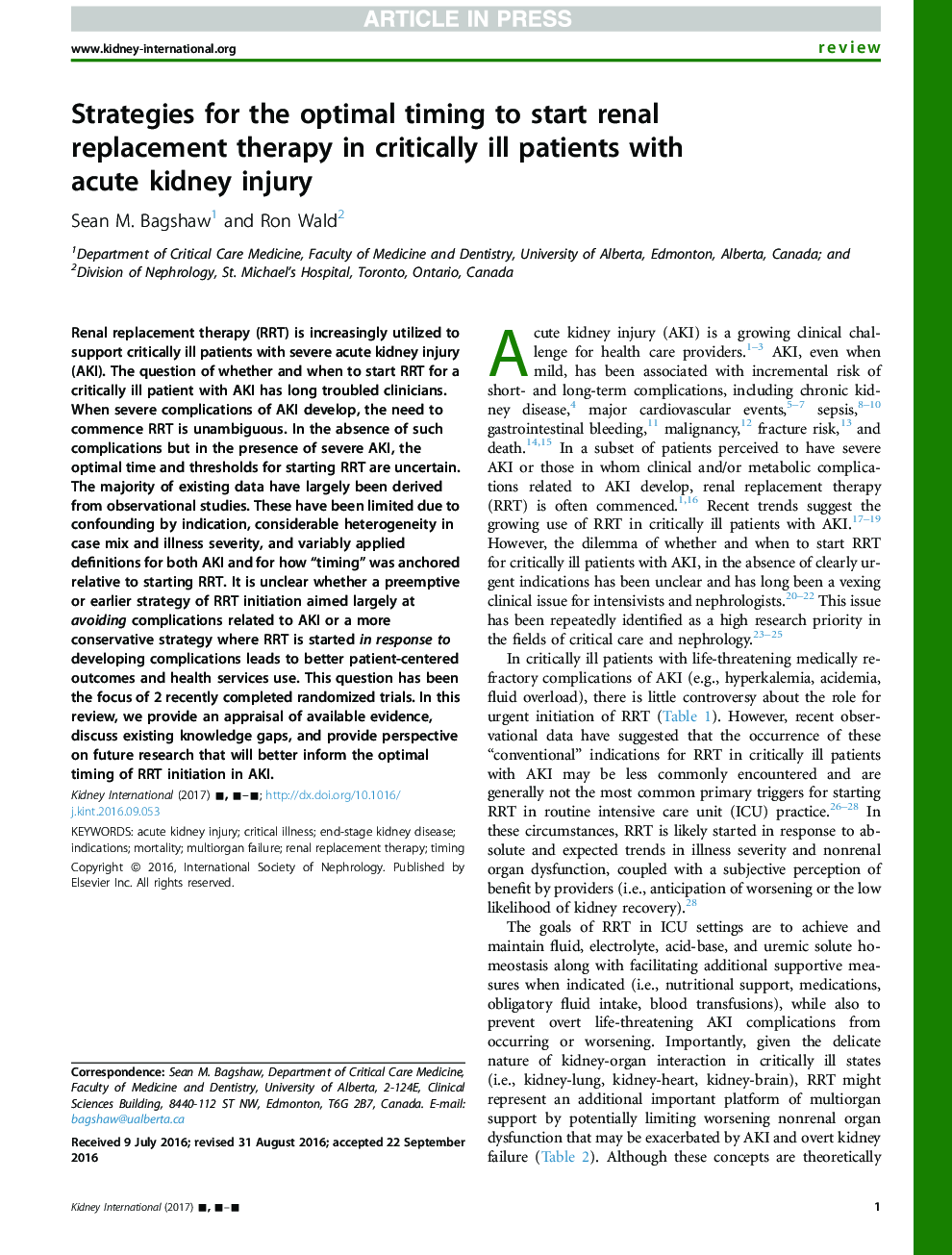| Article ID | Journal | Published Year | Pages | File Type |
|---|---|---|---|---|
| 5688488 | Kidney International | 2017 | 11 Pages |
Abstract
Renal replacement therapy (RRT) is increasingly utilized to support critically ill patients with severe acute kidney injury (AKI). The question of whether and when to start RRT for a critically ill patient with AKI has long troubled clinicians. When severe complications of AKI develop, the need to commence RRT is unambiguous. In the absence of such complications but in the presence of severe AKI, the optimal time and thresholds for starting RRT are uncertain. The majority of existing data have largely been derived from observational studies. These have been limited due to confounding by indication, considerable heterogeneity in case mix and illness severity, and variably applied definitions for both AKI and for how “timing” was anchored relative to starting RRT. It is unclear whether a preemptive or earlier strategy of RRT initiation aimed largely at avoiding complications related to AKI or a more conservative strategy where RRT is started in response to developing complications leads to better patient-centered outcomes and health services use. This question has been the focus of 2 recently completed randomized trials. In this review, we provide an appraisal of available evidence, discuss existing knowledge gaps, and provide perspective on future research that will better inform the optimal timing of RRT initiation in AKI.
Keywords
Related Topics
Health Sciences
Medicine and Dentistry
Nephrology
Authors
Sean M. Bagshaw, Ron Wald,
